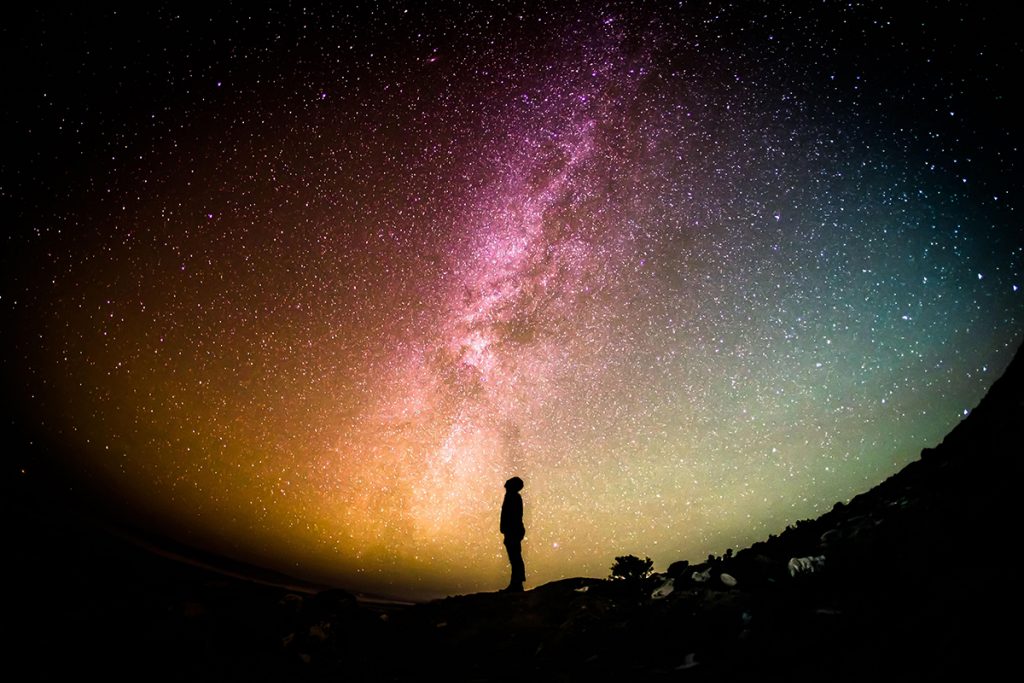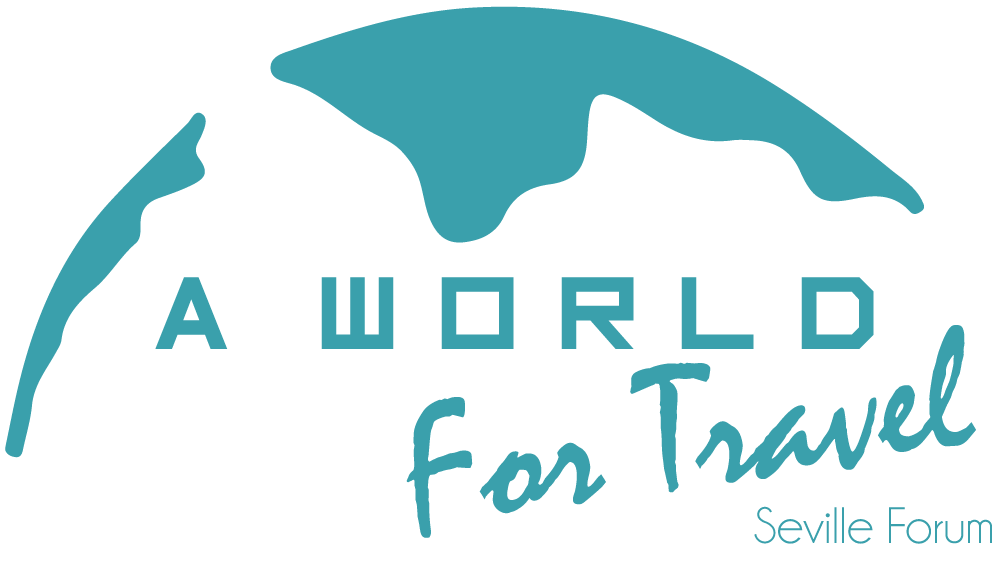
Tourism: Is it a crisis? No, it’s a revolution!
Covid-19 is an unprecedented worldwide crisis, no area of human activity will be safe from scrutiny and the consequences will be closely interlinked with the changes and aspirations which were already in motion.
How will we find a way out of this crisis? The Travel and Tourism sector will be asking how it can survive and develop, a question that has become more complex in this case than in previous crises. It would be naive to hope for a simple end to the crisis, without taking a long hard look at how our sector functions.
If as feared, the health crisis is combined with an economic crisis, the acceptance of human fragility and its consequences will be at the centre of travellers’ expectations, in a century where precautionary and minimum risk principles are the linchpin of its value system. The type and intensity of the footprint left by tourist activities and travel in its broadest sense, can no longer be left unanswered.
What is striking is to see, in an uncertain, exceptional and threatening situation, is that nearly 4 billion people have accepted, in such a short time and almost unanimously, to self-isolate and change their way of life, their social behaviour, their routines, their priorities.
What is striking is that economic, budgetary, financial and social dogmas have been shattered one after the other, each decision having catastrophic effects; the consequences and extent of which remain largely unknown.
But let us also admit that for some years, our thought processes and values as well as our economic and financial models were already under great pressure from:
- Climate change and access to resources,
- Co-existence amongst tourists and local inhabitants and priority given to local production,
- Changes in energy sources,
- Technological developments and changes in economic and production models,
- A desire for a gentler and slower way of life, and a search for meaning and values,
- Priority given to safety in an increasingly fragmented world,
- Changes in society and on a social level.
We are in the midst of a real revolution, the Covid-19 amplifies it, makes it universal. It is everyone’s responsibility to take this into account, to adapt and to change our model.
Travelling is and will remain an inherent part of humankind.
The stakes are high. Our civilisation is a civilisation of research, discovery, innovation, curiosity, surpassing oneself, knowledge development and the sharing thereof. You could say that “Travel” and “Movement” are part of the reptilian brain of Homo sapiens.
But let us remember for what reasons and for what purpose! The human species has colonised the planet for multiple reasons in search of well-being, safety, subsistence but also for knowledge and spiritual and intellectual enlightenment.
Let us be clear, our trips need to have meaning, to be responsible, to contribute something and to be shared so that they do not end in destructive overconsumption.
We often talk about experiences which can fulfil this quest for meaning. But, too often, the meaning merely ends up adding to the narcissistic trumpet blowing that exacerbates and stimulates social networks.
Travel is discovery
The word discover has a meaning: it means to reveal something that is hidden, that is not accessible, something that makes you think, amazes, awakens.
However, there is nothing more similar than two shopping centres, two high streets with the same shops, two theme parks (especially when they have the same theme), two seaside resorts that only focus on their pools, beaches or buffets.
Where is the discovery principle when the only attraction is the price tag? Where is the sharing principle when guests never leave their hotel? Is an experience which is almost identical to one you could have close to home, a useful and a necessary experience? …
The chain of responsibility is too large to find a responsible party. There is no need to search for it because it may have already disappeared.
The answer is yes, Travel must change if it is to continue to be one of the main drivers for humanity, its prosperity, its responsibility and its development.
For too long we have summarised and explained tourism activity, and I will be the first to say it, in economic figures, share of GDP, tourist numbers, tourist expenditure, in its contribution to the balance of payments, in terms of jobs. Obviously, this reasoning leads inexorably to concentrated tourist visits, production, stays and infrastructure. The bigger it is, the more beautiful it is. The more well-known it is, the more people visit it.
This paradigm was shattered when the Covid-19 reminded us that human activity is more fragile when it is concentrated.
Tourist development has not been exemplary in its excesses. And yet there are so many places to discover and experiences to share.
While these voyages of discovery and exchanges are at the heart of a society that shares and respects others, another danger is lurking. It is the dark side of human nature. The side that is guided by fear and ignorance. It believes in every man for himself, aiming to control freedom and to solidify our certainties by discarding our individual and collective responsibilities towards the environment, nature and future generations. It makes people cling to their cultural identity and brings about security bans and social restructuring based around tangible totems for no reason or concern other than short term survival. It rebukes change, restructure, and any type of questioning. It fuels people’s overactive imagination and makes innovation totally impossible.
We must therefore take Travel and Tourism into a new dimension, spearheading this mission which should always be its raison d’etre
This is a great opportunity to make Tourism and Travel the propelling force for the reversal of values and for the emancipation and awakening of humankind to its responsibilities, without conceding the values of sharing, exchanging, discovery and healing.
For this, Tourism must revolutionise the demand to ensure the supply
However, to revolutionise the demand, it is necessary to listen out for and hear the weak signals above the strong signals expressed by consumers and users. But this is during normal times. The crisis we are experiencing is revealing and transformative. Weak signals turn into strong ones instantly.
These are the factors of anticipation that we must take into account during this period of paralysis when nothing is happening.
Believing we can go back to the way things were would be an unthinkable mistake.
At the start of the crisis, like many, I thought that the when we started up again, it would be amazing and would be driven by a desire to recover. Just like after a war, when the signing of the armistice is a moment of liberation. But will there be an armistice with a faceless enemy? Are we not condemned to a wartime economy for months to come?
And if it is not a wartime economy, we will need to adopt a new approach, for the new needs of those with dulled or renewed passions.
If there is a human activity that can make sense of it all, it’s travel.
It turns fiction, imagination and wonder into reality. It strengthens the fibres of humanity by revealing its diversity and its similarities.
There is the bond to one’s ancestral land; then came the vision of a global village bringing with it a solitary and unique civilisation; now is the time for « glolocalisation », which is not thinking globally and acting locally but rather the other way round, acting locally and taking this action to a global level.
It is all about allowing the individual to anchor himself in a reality, even if it is not that of his ancestors, and even if he changes it several times in his lifetime, according to his lifestyle and his travels.
It’s about respecting what you leave behind and what you adopt.
It’s about making hospitality one of the strongest values.
It is about tolerance, which can only be heard and expressed when there is respect for others, their culture, their lifestyles, their resources, their well-being and their environments, and this, without any constraints.
Travel must allow us to try different ways of life and thinking throughout the whole journey.
Travel is about partaking in events that bring people together, be it festive, sporting, cultural or professional. It is not about imposing a way of life; local consumerism, newspeak, a community and its codes, on a population which has asked nothing of you.
The culture of hospitality becomes the keystone of the building
But welcoming Chinese people, for example, does not mean systematically taking them to Chinese restaurants, or only serving them lukewarm liquids.
Welcoming someone is helping them to discover, educating and sharing without being imposing and it is finding that balance. Welcoming is a pedagogy.
It is not an easy task, but our profession has the ability to achieve it. Let’s go further by saying that this is what can really add value.
Tourism all too often comes down to logistics. Tomorrow we need to work together with local people.
The tourism and travel industry complains about all the obstacles that it faces, but it rarely differentiates itself. Even the famous “service”, which the French neglect so much, is, when it is done well, only a logistics service that answers the questions: Where? When? How? But there is no answer to the question: Why? And even less of one to: What for?
If the tourism industry has to take into account changes in demand, it must also take into account the communities it visits. It is not simply a co-operation, but a real collaboration which will as a consequence lead to a fair distribution of the value and will therefore become acceptable to all parties.
The challenge is therefore that of efficiency and adaptability
Effective means economically viable, it is not a compromise, it is a value.
Effective means appreciated, valued, it is not quantifiable, it is a feeling.
Effective means esteemed, by those who take as by those who give, by those who welcome as well as those who are welcomed.
Effective means sustainable over time and space, it is a principle of responsibility and self-esteem.
Adaptable means diverse, in its richness and its reality,
Adaptable means adoptable by the one who receives and explainable by the one who gives, Adaptable means sustainable by each environment and all types of biodiversity,
Adaptable means it can be shared by the one who visits with the one who is visited, it is a principle of tolerance and understanding.
In conclusion, putting the human component at the heart of the touristic offering is not including logistical services, it is building logistics around service.
The path of possibilities, the actors on this path, those responsible for its smooth progress therefore have a major responsibility: to reinvent themselves completely, to do less to do it better, to rethink the experience, to give back to travel its primary meaning, that of discovery.
When we come through the other end of the health crisis, because we will somehow come through it, imagination must be the driving force and the compass of investments. We have jumped head on into the economy of meaning and well-being. It’s as much about resilience as about revolution. And as the Italians say so well: “Chi va piano va sano, e va lontano…”
This is the ambition of A World For Travel: to build a compass to allow travel and tourism to transform so it can continue its mission.


